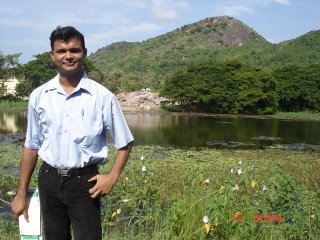Societal Analysis & Development Action

If a free society cannot help the many who are poor, it cannot save the few who are rich.
John Fitzgerald Kennedy
On June 22, 2005 we were asked to complete two assignments as part of the course. One we had to choose any person from the society and get to know him, get his views on life, future, and the surroundings. We needed to understand his outlook towards life whether it was pessimistic or optimistic. His values, attitudes and anything internal or external that was influencing his life. Other assignment was that, we need to give a write up and presentation on a topic assigned to us.
The first assignment was of real interest and it gave me a lot of learning. I had chosen child labor as my subject. I had thought it would be difficult to get one, but to my surprise the basti just outside our institute had a number of children who were out of school and were working for their family. It really opened my eyes in many aspects. Well to be true this experience gave me more knowledge about the society than the whole course. I could feel the pulse of that poor boy and I feel that a person without that feeling which I got during my case study can’t become a true rural manager. As Mahatma Gandhiji had said that when you plan for the country, think about the poorest man you had ever seen and think how your policies is going to help him. So you can achieve that thinking only when you have really lived and worked with them. No amount of bookish knowledge is going to help you in this respect. There are many thing which you can’t expressed in word, you need to feel them. The boy, shankar sahu whenever he sees me becomes very happy and calls me to play cricket with him. The love which I see in him makes me very happy. The real pleasure of life is in giving, this is the other lesson which I learnt in this case.
On June 29, 2005 we dealt with poverty and poor. I came to know about the categories of poor, what are the reasons of poverty. On that day Fr. J.M. Das also put up a very important topic for discussion “why are poor really poor”. Well as it is has many factors involved in it some blamed the poor themselves, some the elite and the administration and some blamed the caste and culture for it. In one class, I don’t remember the date we participated in a play in which there were ten volunteers and I was one among them. Each were to assume themselves a particular member of the society who had certain responsibility and some had privileges. It was known as power walk questions. That was also a nice experience; I was to act as a widow woman with four children. When I saw all member going forward each time and I lagging behind I felt the helpness and uncomfortable with the situation.
It was during this period a drama troupe came to our institute which was performing on part of the wada na todo abhiyaan. A movement associated in expressing its solidarity with the GCAAP (Global Call For Action Against Poverty) in lobbying for making development goals the foremost political priority at both national and international fora. The play showed how self-sufficient people who are satisfied with their environment and made to believe of a better world by mining lobby and slowly their environment are poisoned and the self-sufficient people’s fall into a trap of poverty. It was really a touching play which raised lot of emotion and I could connect many of my class room learning to it. It raised many question in my mind like what’s the limit’s of development, who will define what is sustainable development, what is the line were we need to compromises between development and environment. These questions are still unanswered for me.
The second assignment which I did as part of the group was on criminalization of politics. In this I learned was how to make flash presentation. I felt that this did not give me much of new learning, as I was familiar with this topic due to regular reading of newspaper. On another aspect which I have reservation is the definition of development. Most of the people had chosen definition by Numberger, Robbins and Dudely Seers, but what I feel is that the definition on development by Kurian is the most appropriate for our country. It talks about economic aspect of development. What I feel is that development has different meaning for different country. In our country were more than thirty crore people live below poverty line, food is the most important thing. You can’t think of anything else until you have a sense of food security. So to speak of development on the basis of educational, population growth, social relationship, participation in political process etc. seems useless.
On Aug 1, 2005 another important aspect on which we were familiarized was participatory tools and methods of social analysis. In this we did some exercise like the need assessment exercise, risk analysis and pocket charts. These tools seem to be very powerful methods of social analysis. These are really very easy to use and can really ignite interest in people for participation.
To sum up I understood the dynamics that take place between different constituent of the society. I feel that my perception about poor and poverty has been refined and now I can clearly understand the chemistry that is involved in it. The whole concept of poverty, development and the resources have to be taken in holistic way and an integrated approach is required for the overall development of the country.

0 Comments:
Post a Comment
<< Home